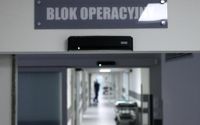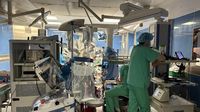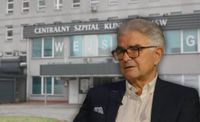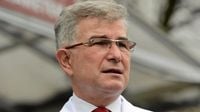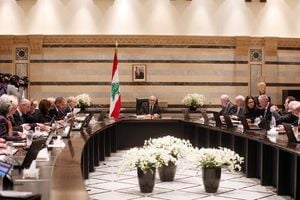In a shocking revelation, patients suffering from pancreatic cancer at the National Institute of Medicine of the Ministry of Interior and Administration (PIM MSWiA) were allegedly coerced into making substantial donations to a hospital-affiliated foundation to access modern surgical treatments. This disturbing practice, uncovered by journalists from Wirtualna Polska and Rynek Zdrowia, has sparked outrage among health officials and the public alike.
According to the reports, patients were required to contribute tens of thousands of zlotys—often around 20,000 zlotys—before they could undergo surgery using the advanced da Vinci robotic system. This surgical method is known for its precision and minimally invasive approach, which significantly improves recovery times compared to traditional surgery. However, many patients who did not comply with the donation requests were relegated to receiving conventional surgeries, which are less effective and more invasive.
Professor Marek Durlik, the head of the Gastroenterological Surgery and Transplantology Clinic at PIM MSWiA and the chairman of the institute's scientific council, was reportedly at the center of this controversy. Patients recounted instances where Durlik explicitly stated that a donation to the foundation was a prerequisite for receiving robotic surgery. In one instance, he was recorded saying, "We could either ask patients for donations or stop operating." This statement raises serious ethical concerns regarding the practice of medicine in a public healthcare setting.
The foundation in question, which was established to support the hospital financially, reportedly allocated approximately 80% of its income to medical equipment. The remaining funds were spent on various expenses, including foreign trips for medical staff, event organization, and even coffee machines for doctors. Critics argue that these expenditures should not come at the expense of patients' health and well-being.
Health Minister Izabela Leszczyna expressed her disapproval of the situation, stating, "It is unacceptable for a patient using the services of a public hospital, operated on with public equipment by a doctor paid with public funds, to have to pay extra for the operation." Leszczyna's comments reflect a growing concern over the integrity of public healthcare services in Poland.
Following the emergence of these allegations, the Ministry of Health and the National Health Fund (NFZ) announced investigations into the practices at PIM MSWiA. The Central Anti-Corruption Bureau (CBA) has also been tasked with examining the matter. The spokesperson for the Ministry of Interior and Administration revealed that an audio recording made in 2023, which detailed the questionable practices, had been submitted to the CBA for further analysis.
Despite the serious nature of these allegations, Professor Durlik defended his actions, claiming that "everyone in the hospital knew" about the requests for donations. He argued that the need for such contributions stemmed from a lack of funding for essential surgical instruments. However, many question the legality and ethics of tying donations to medical procedures in a public healthcare system.
The controversy surrounding PIM MSWiA is not new. Negative comments regarding Durlik's practices have circulated since at least 2011, but it wasn't until this recent investigation that the full extent of the issue came to light. The foundation's revenue figures are staggering; in 2022, it reported 2.4 million zlotys in income, and in 2023, 2 million zlotys. A significant portion of this revenue came from individual donations, raising further questions about the pressure placed on patients.
In a statement, the management of PIM MSWiA distanced itself from the actions of Professor Durlik, expressing "deep outrage" at the allegations. They emphasized that the hospital has never demanded any fees for treatment and that the practices described are entirely unacceptable. The hospital's administration has pledged to cooperate fully with the ongoing investigations.
As the situation unfolds, the implications of these practices are far-reaching. Patients facing life-threatening conditions like pancreatic cancer deserve equitable access to treatment without the burden of financial coercion. The public healthcare system is designed to serve all citizens, and any actions that undermine this principle must be addressed swiftly and decisively.
In the wake of these revelations, calls for reform in the healthcare system have intensified. There is a pressing need for policies that ensure transparency and accountability in medical practices, particularly in public institutions. The situation at PIM MSWiA serves as a stark reminder of the vulnerabilities within the healthcare system and the importance of safeguarding patient rights.
As investigations continue, the hope is that lessons will be learned and measures will be implemented to prevent similar situations from arising in the future. Patients should never have to choose between financial contributions and receiving the medical care they desperately need.
